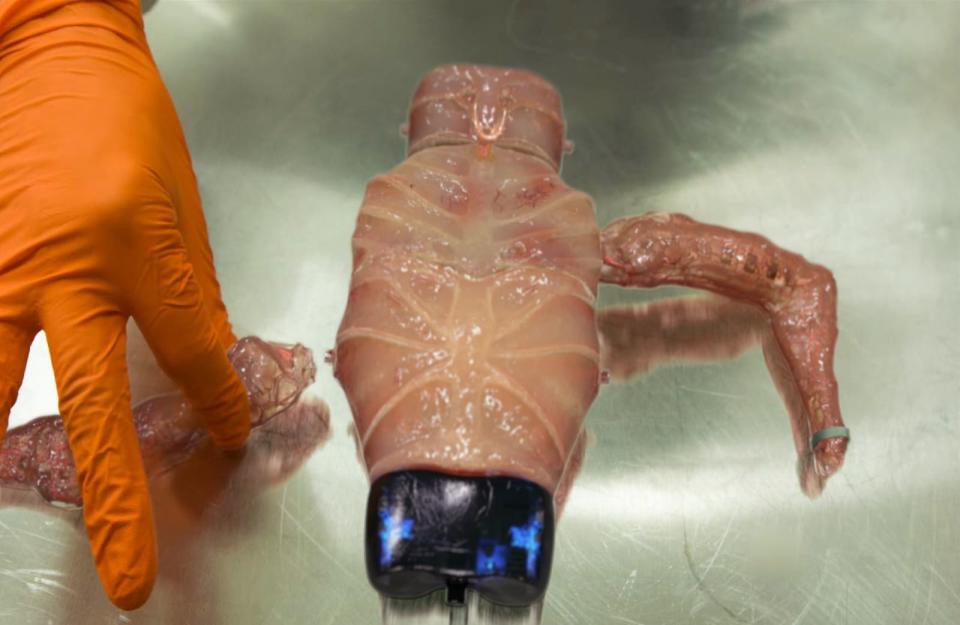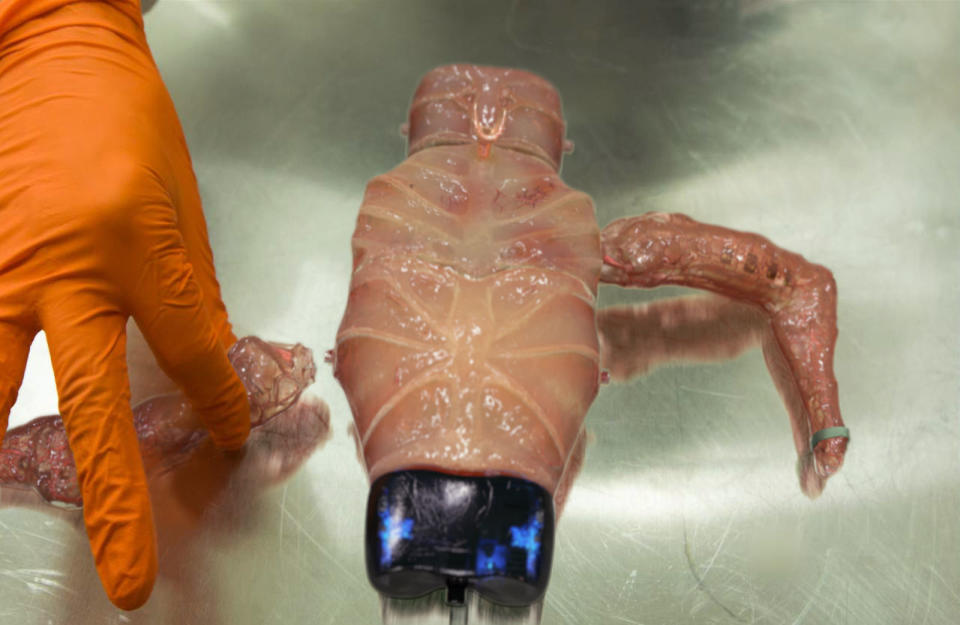Prominent artists banned last-minute by Chinese art and tech show
“Technology per se is a political issue.”
Several contemporary artists tackling the social implications of technology have been banned by censors from China's upcoming Guangzhou Triennial.
One of them was Heather Dewey-Hagborg, whose works often critique biotechnology, notably including portraits derived from the DNA of Chelsea Manning. She woke up on December 8th to an email from one of the show's three curators, Angelique Spaninks, explaining that her piece T3511 was being pulled last-minute. The triennial, titled "As We May Think, Feedforward," explores the links between humanity and technology and opens on December 21st.
Spaninks told Dewey-Hagborg that her work was censored by the government, and while she was given no official justification, speculated that authorities were sensitive to bioethics issues. "It came totally out of the blue," Dewey-Hagborg told Engadget. T3511, a collaboration with Japanese cinematographer Toshiaki Ozawa, is a narrative about a biohacker who tracks down a saliva donor.
Of the motivation for the censoring, curator Philipp Ziegler said to Engadget: "It's not transparent ... The museum doesn't know exactly the reasons." He added: "We were surprised that it came so late, but we were informed from the beginning that of course, working in China ... all the works, especially the international works, have to go through a process of [official] approval."
Other international artists whose exhibits have been canceled include Floris Kaayk, Lawrence Lek, Zach Blas and Jemima Wyman, according to artists and curators who have worked on this triennial. Meanwhile, the late German filmmaker Harun Farocki had sections removed from his video Parallel, said Antje Ehmann, his widow.
The artworks' removal was partly due to their "incompatibility with the Guangdong people's taste and cultural habits," Huang Yaqun, the deputy director of academic affairs at the Guangdong Museum of Art, told The New York Times.
Dutch artist Kaayk received an email from Boxes Art Museum, where his video piece The Modular Body was due to be exhibited, that told him it "has not passed the examination and approval of the Chinese cultural department."
He wrote in an emailed statement to Engadget: "Isn't contemporary art meant to raise questions, and start discussions about important subjects in actuality and those of our near future? What are China's reasons to organize all these big expensive 'contemporary art' manifestations if these questions, the core of contemporary art, freedom of speech, freedom of mind, is ignored and undermined? Is it just a misleading marketing tool to fool the rest of the world and show there is room for critical contemporary art in China?"
Blas, an American artist based in London, said he was asked to remove two explicit spoken sentences from his video im here to learn so :)))))) days before learning that his work would be banned outright.
The removed pieces span the gamut of tech topics. Blas and Wyman's installation, im here to learn so :)))))) is a video resurrection of the infamous Microsoft chatbot Tay. The Modular Body is a sci-fi story of a synthetically engineered life form. Geomancer by Lawrence Lek is about AI creativity.
At a time when advanced gene editing, facial recognition, and surveillance systems are growing in China, the triennial was described in an official release as using art as a prism to "reflect on the trajectories of technological advances and their reverberations throughout the social sphere." Just weeks ago, a Chinese researcher claimed to have created the first genetically edited babies in the world using CRISPR/Cas9, sparking backlash from the scientific community and a rebuke from officials in Beijing.
"The post-humanist perspective and our relation to the digital technology ... those are political issues even if you have not so many outspoken political works [in the exhibition]," said Ziegler. "Technology per se is a political issue."


